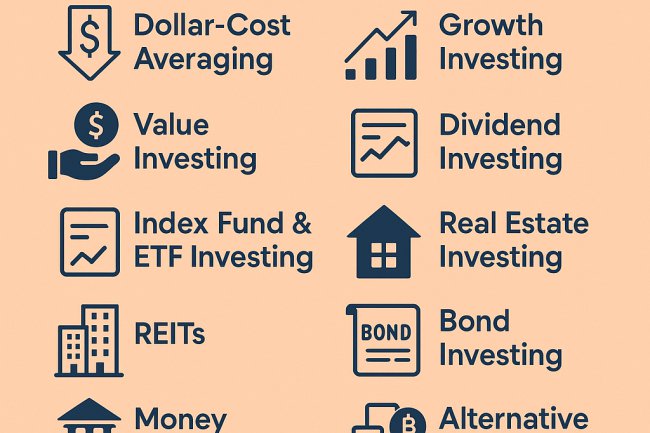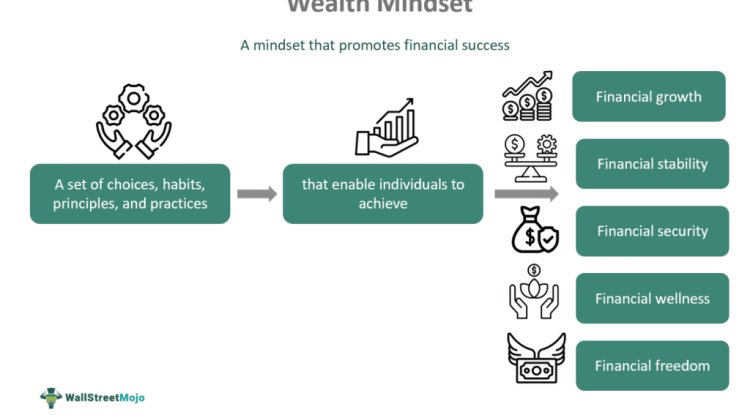The 10 Commandments of Investing
Learn the 10 rules that guide smart investing. Save wisely, diversify, and build long-term financial freedom in Africa.

Timeless Rules for Building Wealth in Africa
Money doesn’t grow by accident — it grows by intention.
Every wealthy person, from Warren Buffett in the U.S. to Equity Bank investors in Kenya or Dangote in Nigeria, follows a set of unspoken rules that guide their financial decisions.
They’re not secrets. They’re commandments — timeless principles that protect you from bad decisions and lead you toward lasting financial freedom.
Here are the 10 investing commandments every African wealth-builder should live by.
1. Before You Invest, You Must First Save
Investing without saving is like trying to build a house without bricks.
Your savings form the foundation of your financial life — your first capital, your seed money.
Before you put money into stocks, real estate, or a business, you need a consistent savings habit. Even KSh 500, ₦1,000, or $5 weekly matters.
Tip: Automate your savings. When your salary lands, transfer a set amount to your savings or money-market fund before you spend anything. This creates discipline and removes emotion.
Rule: If you can’t save, you can’t invest.
2. Build an Emergency Fund Before Anything Else
An emergency fund isn’t a luxury — it’s your armor.
Life happens: illness, job loss, or unexpected expenses. Without a cushion, you’ll sell investments or take expensive loans at the worst possible time.
Experts recommend 3–6 months of living expenses in a liquid account (like a money-market fund).
For instance, a teacher in Nakuru who saves KSh 5,000 monthly will have KSh 60,000 in one year — a solid emergency start.
Rule: Protect yourself before chasing profits.
3. Keep Liquidity in Your Portfolio
Liquidity means flexibility — the ability to access your money when needed.
Many investors trap all their money in land, buildings, or businesses that take months to sell. That’s risky. A good portfolio should mix liquid assets (cash, money-market funds, Treasury bills) and long-term ones (stocks, real estate).
Kenya Example: Combine Treasury Bills + SACCO Shares + Plots.
Nigeria Example: Mix Treasury Bills + Mutual Funds + Small Real-Estate Crowdfunding.
Rule: Stay ready. Illiquidity equals financial stress.
4. Never Invest in What You Don’t Understand
If you can’t explain it in one sentence, don’t put your money there.
Too many people lose money in “hot” opportunities — crypto they don’t grasp, online scams, or pyramid schemes disguised as investments.
Before investing, ask:
-
How does this make money?
-
What are the risks?
-
Who regulates it?
-
Can I afford to lose this?
Do your research. Watch credible finance creators, read company reports, or ask a licensed advisor.
Rule: Ignorance is expensive. Knowledge compounds faster than interest.
5. Don’t Take More Risk Than You Can Handle
All investments carry risk — even “safe” ones.
The trick is not to avoid risk but to measure it.
If you can’t sleep because of market volatility, your risk tolerance is too low for that investment.
For example, stocks can drop 20 % in a year, but Treasury Bonds rarely do. Real estate may stay flat for years, but you can’t panic-sell a plot.
Ask yourself:
-
If this goes down 30 %, will I survive or panic?
-
Can I hold it for 5+ years?
Rule: Take risks you understand — not risks you fear.
6. Diversify, Diversify, Diversify
Don’t put all your eggs — or shillings — in one basket.
Diversification is your safety net against the unpredictable.
Mix different asset classes:
-
Cash and money-market funds for safety.
-
Stocks for growth.
-
Bonds for stability.
-
Real estate or REITs for long-term security.
Example: A Kenyan earning KSh 80,000 might split savings as:
-
40 % Money-Market Fund
-
30 % Stocks
-
20 % SACCO Shares
-
10 % Side Business
Rule: If one area fails, the others keep you alive.
7. Understand the Risk–Return Relationship
The higher the potential return, the higher the potential loss.
That’s the eternal truth of investing.
If someone promises “guaranteed 20 % monthly,” run. No legitimate investment grows like that without risk.
Instead, aim for steady compounding.
Money-market funds yield 9–12 % annually; stocks 15–20 % on good years; businesses 30 % if managed well.
Rule: Chasing quick returns is the fastest way to lose money.
8. Your Biggest Enemy Is You
Emotions destroy portfolios faster than market crashes.
Fear makes you sell too early. Greed makes you hold too long. Impatience makes you quit too soon.
Investing is 80 % psychology and 20 % strategy.
Train your mind to stay calm during turbulence.
When markets fall, remember — the patient get rich, the panicked get poor.
Rule: Discipline beats intelligence.
9. Watch the Costs — They Eat Your Returns
Every investment has costs: management fees, transaction charges, taxes, or inflation.
A 2 % annual fee may sound small, but over 20 years, it can eat a quarter of your profits.
Compare fees before investing. Ask:
-
What’s the annual management charge?
-
Are there entry or exit fees?
-
Is there a cheaper fund doing the same job?
Rule: Small leaks sink big ships.
10. Focus on Sustainable Returns, Not Quick Riches
Wealth is built through time, not miracles.
You don’t need 100 % a year — you need consistent, repeatable 10–15 % growth compounded over years.
A KSh 50,000 investment earning 12 % annually grows to KSh 310,000 in 15 years. Add monthly contributions, and you cross a million easily.
Consistency always beats speculation.
Rule: Slow and steady wins the wealth race.
African Stories of Discipline
1. Faith – The Nairobi Banker
Faith started by saving KSh 1,000 weekly in a money-market fund. Two years later she invested KSh 100,000 in Safaricom shares. She’s now earning dividends every year — and her mindset changed forever.
2. Chinedu – The Lagos Engineer
Chinedu built a side hustle in digital printing, then invested profits in mutual funds. He ignored “get-rich-quick” deals, and his portfolio now covers his rent annually.
3. Abdi – The Mombasa Entrepreneur
Abdi diversified early — part of his profits in Treasury bonds, part in real estate. When Covid-19 hit, his investments cushioned his business.
These are ordinary Africans using simple principles to build extraordinary results.
The Formula for Wealth
Wealth = (Income × Discipline) + Time
That’s it. No magic, no luck.
You grow your income, manage your emotions, and stay patient.
Investing is a long-term conversation with the future — and the future rewards those who stay consistent.
Final Thoughts
Investing isn’t gambling. It’s a deliberate act of turning income into independence.
When you follow these 10 commandments, you protect your money, multiply your opportunities, and sleep peacefully knowing your future is secure.
The markets may change. Economies may rise and fall. But these principles never expire.
“The goal is not to get rich quick — it’s to stay rich forever.”
What's Your Reaction?




















